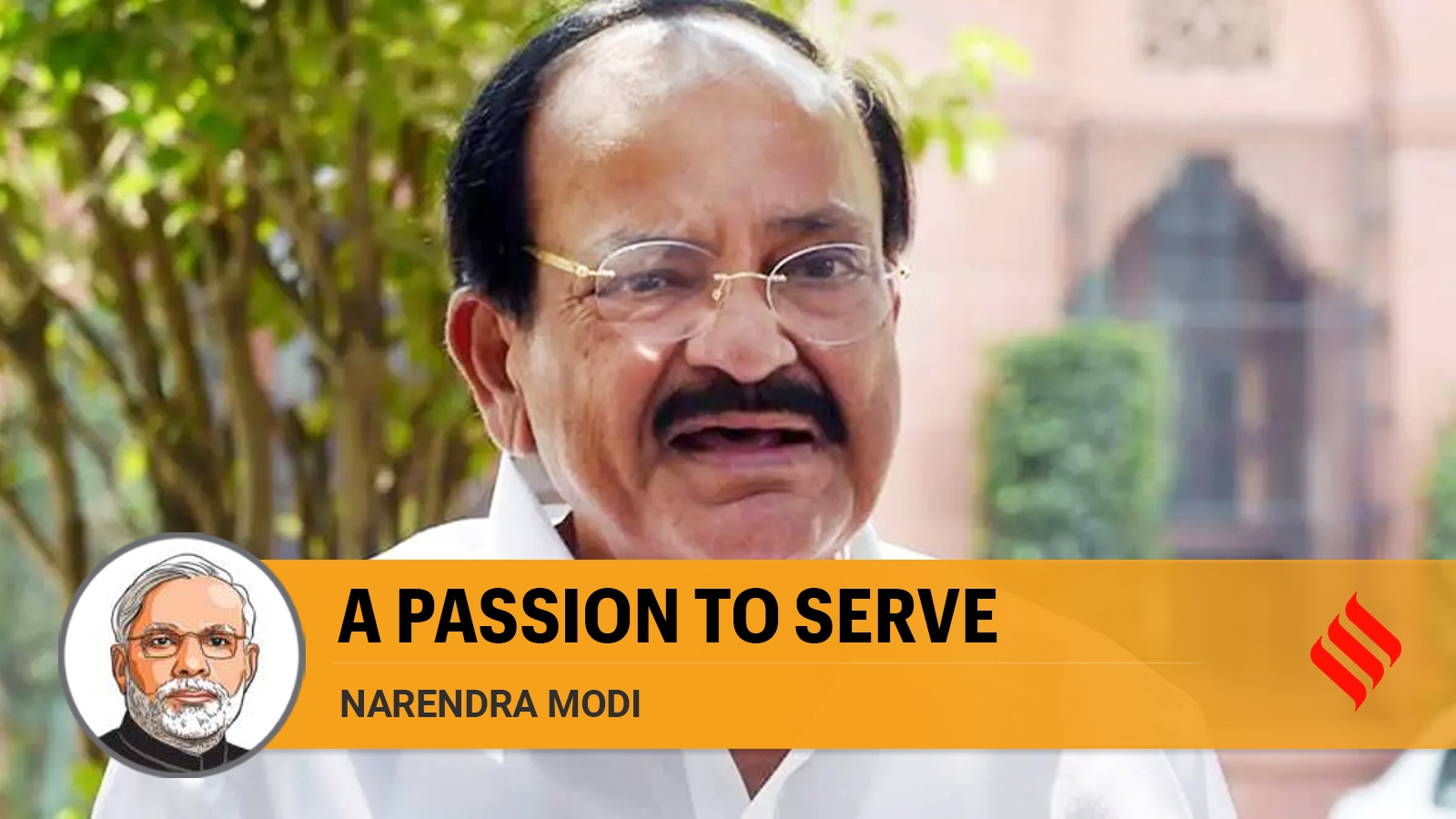Today, India’s former Vice President and respected statesman M Venkaiah Naidu garu turns 75. This is an occasion to celebrate a leader whose journey shows dedication, adaptability and a commitment to public service. From his early days to his tenure as Vice President, Venkaiah garu’s career exemplifies his unique ability to navigate politics with ease and humility. His eloquence, wit and focus have earned him respect across party lines.
Venkaiah garu and I have been associated with each other for decades. I have learnt a lot from him. His first brush with activism and politics was in Andhra Pradesh as a student leader. Given his talent, he would have been welcomed into any political party. He chose to work with the Sangh Parivar because he was inspired by the “Nation First” vision. He was associated with the RSS and ABVP and then strengthened the Jana Sangh and the BJP.
When the Emergency was imposed almost 50 years ago, young Venkaiah garu immersed himself in the anti-Emergency movement. He was imprisoned for inviting Jayaprakash Narayan to Andhra Pradesh. In the mid-1980s, when the great N T Rama Rao’s government was unceremoniously dismissed by the Congress, he was at the forefront of the movement to protect democratic principles.
Venkaiah garu has always been comfortable swimming even against the most formidable tides. In 1978, Andhra Pradesh voted for the Congress but he beat the trend and was elected as a young MLA. Five years later, when the NTR tsunami swept the state, he got elected as a BJP MLA, thus paving the way for the BJP’s growth in the state.
Venkaiah garu is certainly a wordsmith. But he is as much a “worksmith”. Since his days as an MLA, he was respected for the rigour he put into legislative affairs. No less than a stalwart like NTR noted his talent and wanted him to join his party but Venkaiah garu refused to deviate from his core ideology. He led the party on the floor of the Assembly and became the AP BJP president.
It was in the 1990s that the BJP central leadership took note of Venkaiah garu’s efforts and in 1993, he began his stint in national politics when he was appointed the party’s All India General Secretary. As the general secretary, he was focused on bringing our party to power and ensuring that the nation gets its first BJP prime minister. He rose to become the national president of the party.
In 2000, when Atalji was keen on inducting Venkaiah garu into the government as a minister, the latter conveyed his preference for the Ministry of Rural Development. This left everyone, including Atalji, puzzled. But Venkaiah garu was clear — he was a kisan putra (farmer’s son); he spent his early days in villages. Hence, his area of interest was rural development. As minister, he was closely associated with the conception and rolling out of the Pradhan Mantri Gramin Sadak Yojana. Years later, when the NDA government assumed office in 2014, he handled the crucial portfolios of Urban Development, Housing and Urban Poverty Alleviation. It was during his tenure that we launched the important Swachh Bharat Mission and urban development-related schemes. Perhaps, he is one of the only leaders to have worked for both rural and urban development for such an extensive period.
When I came to Delhi in 2014, I was an outsider to the national capital. Venkaiah garu’s insights were handy. He was an effective parliamentary affairs minister — he knew the essence of bipartisanship but was strict when it came to fidelity to parliamentary rules.
In 2017, our alliance nominated him as the vice-presidential candidate. We faced a dilemma — we thought about how the big shoes of Venkaiah garu would be impossible to fill, but at the same time, we knew there was no better candidate for the position. I can never forget one of the speeches he gave when he resigned as minister and MP. He could not control his tears when he recalled his association with the party.
Upon becoming the Vice President, he undertook various steps that enhanced the dignity of the office. He was an outstanding chairperson of the Rajya Sabha, ensuring that the young, women and first-time MPs get the opportunity to speak. He put great emphasis on attendance, making committees more effective and raising the level of debate in the House.
When the decision to remove Articles 370 and 35(A) were placed on the floor of the Rajya Sabha, it was Venkaiah garu who was on the Chair. I am sure it was an emotional moment for him — the young boy who was drawn to Syama Prasad Mookerjee’s dream of a united India, on the Chair, when this was finally achieved.
Venkaiah garu is a voracious reader and writer too. He is known as the person who brought the glorious Telugu culture to Delhi. His Ugadi and Sankranti programmes are among the most cherished gatherings in town. I have always known Venkaiah garu as someone who loves food and hosting people. But, of late, his self-control has also been visible.
Even after the vice presidency, Venkaiah garu has led an active public life. He calls me and asks me about the issues that he is passionate about or about various developments across the nation. I met him most recently when our government returned to office for a third term. He was delighted and conveyed his best wishes. I wish him once again on this milestone. I hope young karyakartas, elected representatives and all those who have a passion to serve learn from his life. It is people like him who make our nation better and more vibrant.
The writer is the Prime Minister of India



